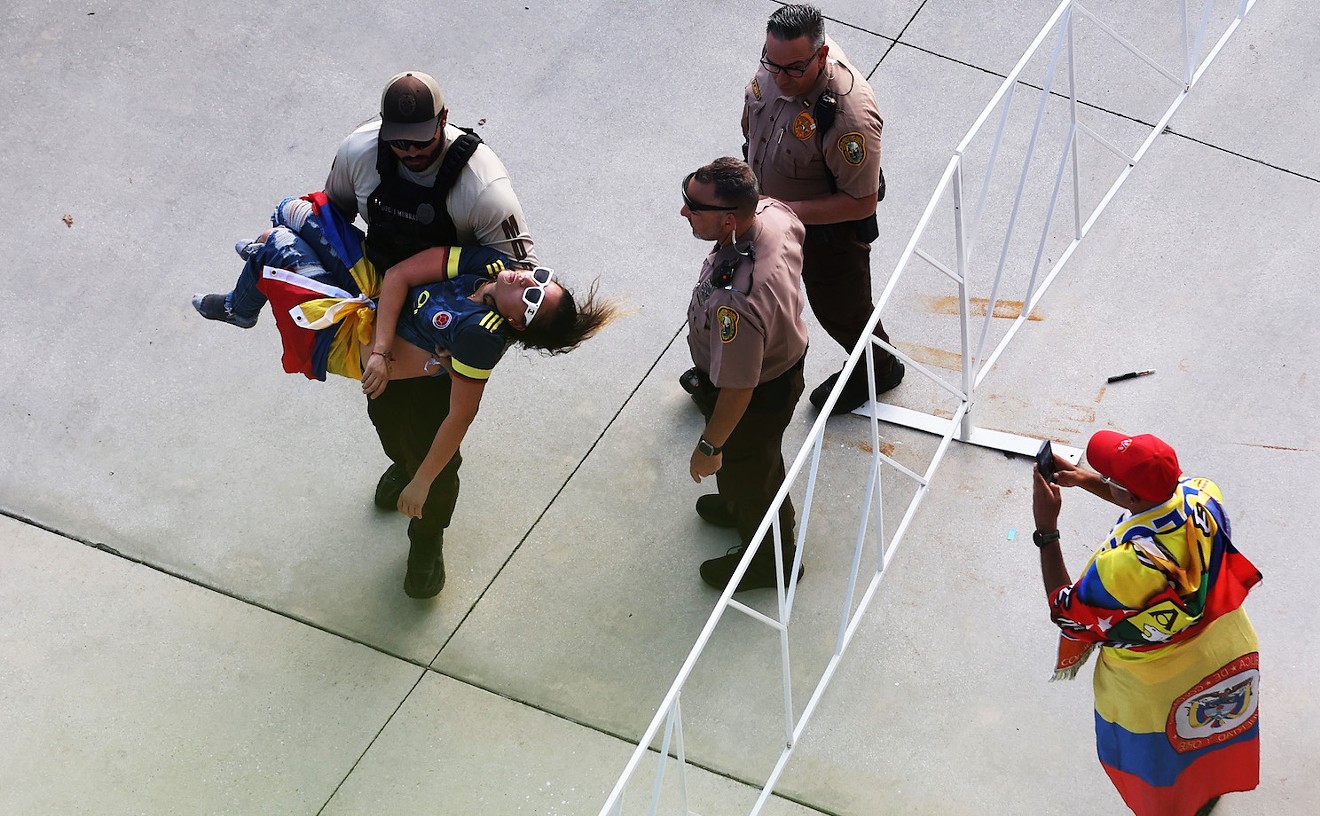Florida House Bill 1069 went into effect in July of 2023, directing public school districts to establish processes to review book objections from members of the public. The Florida Department of Education (DOE) issued a three-page memorandum to all school superintendents about the legislation three months later, laying out the law's requirements for book removals from school libraries and classrooms.
As districts across the state continue to pull scores of books from their shelves seemingly in response to the guidance, the Foundation for Individual Rights and Expression (FIRE) is sounding an alarm: The civil-liberties nonprofit says the Florida DOE's memo "substantially mischaracterizes" the state law.
"As a result, districts removed numerous books outside of formal review procedures, raising First Amendment concerns," the free-speech group wrote in a news release last week. "FIRE is calling on Florida DOE to issue revised guidance to avoid depriving students of access to age-appropriate library materials based on misinterpretations of state law."
According to the nonprofit organization PEN America, hundreds of titles have been removed from Florida schools since 2021 as parents and activists have flooded the districts with challenges to the titles."Districts removed numerous books outside of formal review procedures, raising First Amendment concerns."
tweet this
The surge in book removals — many centering on race, sexuality, sexual orientation, and gender identity — followed a slew of new Florida laws under the administration of Gov. Ron DeSantis, such as the Stop WOKE Act, which restricts teaching about systemic racism in schools, and the so-called Don't Say Gay bill, which bans instruction involving gender identity and sexual orientation before fourth grade. (It was recently extended, in large part, through the end of high school under a new Florida DOE rule.)
How Did the DOE Memorandum Lead to Wholesale Book Removals?
HB 1069 mandates that school districts give complainants the opportunity to provide evidence that the material they're challenging meets at least one of the following criteria: - It "is pornographic" or prohibited under the state's "harmful to minors" law;
- It "depicts or describes sexual conduct" as defined in Florida statute, unless required for instruction;
- It "is not suited to student needs and their ability to comprehend the material presented"; or
- It "is inappropriate for the grade level and age group for which the material is used."
FIRE further claims that although HB 1069 accounts for the fact that a book suitable for a high school senior might not be appropriate for a fourth grader, the DOE memo sweepingly declares that school libraries "may not contain content that...[d]epicts or describes sexual conduct" unless that material is specifically required for a state-mandated course.
"In other words," the FIRE contends, "the memo incorrectly advised schools they must permanently remove all such materials from all libraries, rather than evaluate for which grades the material is appropriate."
On May 16, FIRE sent the Florida DOE a letter calling on the department to issue revised guidance that "accurately reflects HB 1069."
"Revised guidance from the department will help protect the First Amendment rights of all of Florida's public school students," the group sums up. "Books and literature, both classic and contemporary, are vital parts of a well-rounded education.... These misguided policies frustrate students' intellectual curiosity and pursuit of a high-quality education. Florida’s students deserve better."
It remains unclear whether the DOE has responded to the letter. The department has not responded to New Times' request for comment.












